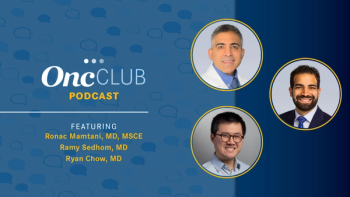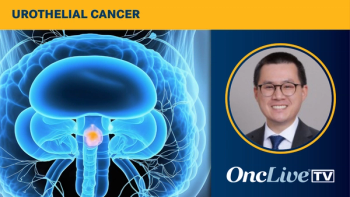
Halmos Highlights Effort Exploring COVID-19 Vaccines in Patients With Cancer

Dr. Halmos discusses the data from a study examining seroconversion rates following COVID-19 vaccination among patients with cancer and underscores the need for novel vaccination or passive immunization strategies for immunosuppressed cohorts.
Welcome to OncLive On Air®! I’m your host today, Jessica Hergert.
OncLive On Air® is a podcast from OncLive®, which provides oncology professionals with the resources and information they need to provide the best patient care. In both digital and print formats, OncLive® covers every angle of oncology practice, from new technology to treatment advances to important regulatory decisions.
In today’s episode, we had the pleasure of speaking with Balazs Halmos, MD, director of Thoracic Oncology and director of Clinical Cancer Genomics at Montefiore Medical Center, to discuss his recent study that examined seroconversion rates following COVID-19 vaccination among patients with cancer.
COVID-19 is known to adversely impact patients with cancer; as such, prophylactic measures are needed. Halmos and his colleagues utilized a validated antibody assay against the SARS-CoV-2 spike protein and determined a high seroconversion rate of 94% in 200 patients with cancer in New York City who had received full dosing with 1 of the COVID-19 vaccines that have been authorized by the FDA.
Compared with the rate observed in those with solid tumors, significantly lower rates were observed in patients with hematologic malignancies, at 98% vs 85%, respectively. Additionally, recipients of highly immunosuppressive treatment like anti-CD20 therapies and those who underwent stem cell transplantation also had lower rates, at 70% and 73%, respectively. Notably, patients who received immune checkpoint inhibitor therapy or hormonal therapies were found to have high seroconversion following vaccination, at 97% and 100%, respectively.
In our exclusive interview, Dr. Halmos further discussed the data yielded from the study and underscored the need for novel vaccination or passive immunization strategies for immunosuppressed cohorts.




































